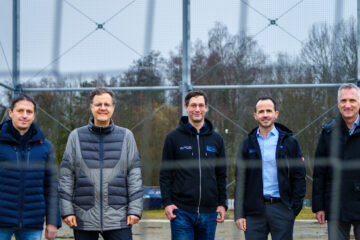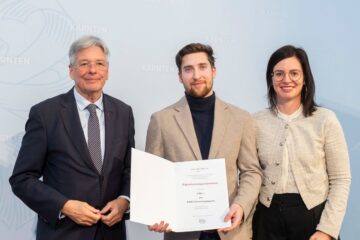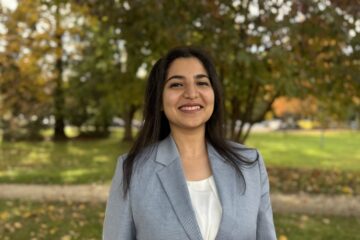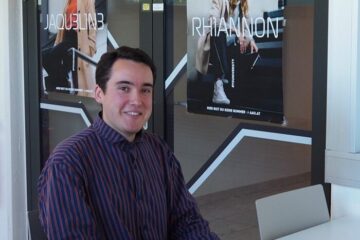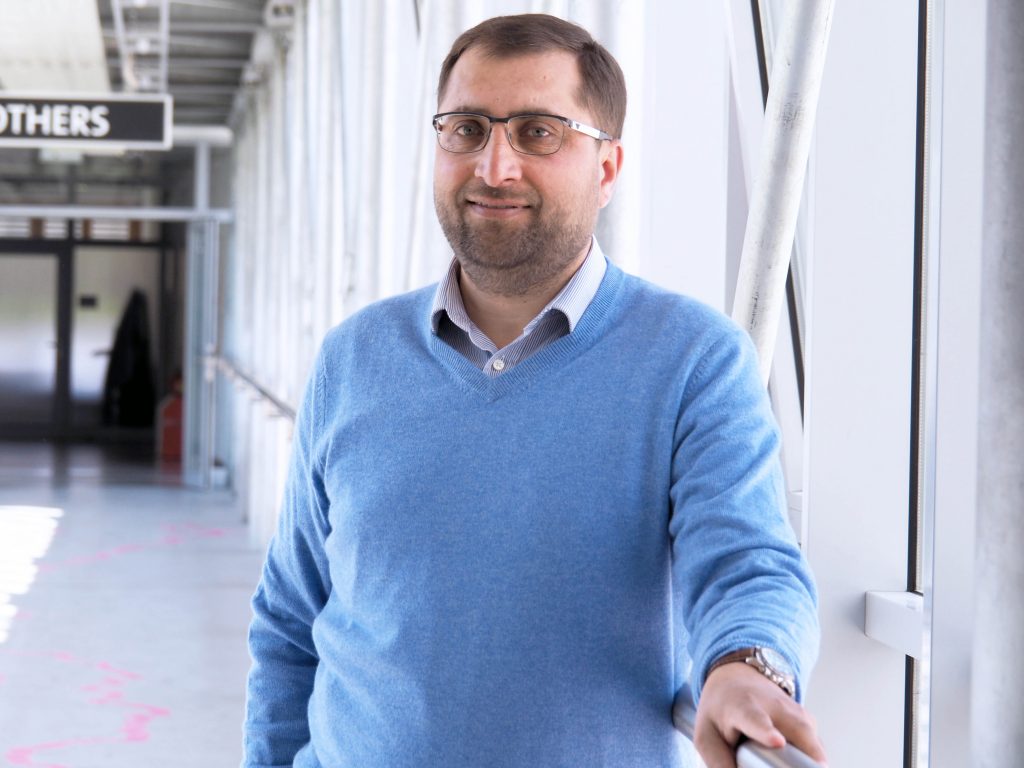
To simplify our daily routines, devices designed for the “Internet of Things (IoT)” are usually equipped with cameras that can record images and videos, and transmit these to other devices. Subhan Ullah’s research focuses on increasing the security of these systems, which often have limited processing capacities. He has recently completed his doctoral thesis.
A scientific career demands great dedication and the willingness to demonstrate total commitment. Subhan Ullah, a graduate of the doctoral programme “Interactive and Cognitive Environments” (ICE), has provided impressive proof of both over the past few years. Upon completion of his Bachelor’s degree in Computer Science at his home university, the University of Malakand, he attended the International Islamic University in Islamabad, where he completed his Master’s degree. As the recipient of a European Union scholarship, he spent one year at Darmstadt University of Applied Sciences, Germany. Next, Subhan Ullah applied for a place on the ICE doctoral programme, which was funded by the European Erasmus Mundus programme. A large part of his doctoral studies was spent conducting research in Klagenfurt, with one year at the University of Genoa in Italy. At the end of April he successfully concluded his doctoral degree with a viva examination.
Subhan Ullah’s research focus places him firmly on the pulse of time. After all, his work concentrates on improving the security of camera applications related to the “Internet of Things (IoT)”. For instance, if an elderly person has a technical support system in order to be able to continue to reside in a smart home for longer, numerous cameras are required. These transmit specifically selected information to monitoring terminal devices, for example they record when someone falls and does not stand up again. The problem is this: These smart devices have limited processing capacities, and this poses a big challenge as far as the encryption technologies are concerned. As Subhan Ullah explains, in terms of cyber security, camera systems must reliably safeguard four factors: confidentiality, which means that the data must be accessible to authorised persons only; authentication, which means that the data must actually come from a specific camera; integrity, which means that nobody should be able to interpose themselves between the camera and monitoring device, and finally, freshness, which means that the images must truly be recent. For his doctoral thesis, Subhan Ullah modified existing applications and harnessed their usefulness for the particular needs of multi-camera networks. The challenge he faced was this: In a system where several cameras transmit data, this information needs to be aggregated at a certain point, and then forwarded to a terminal device. These systems have a significantly greater number of node points, opening up additional security holes, which need to be closed.
Cyber security, especially the light-weight kind of security technology required for resource-restricted smart devices in IoT applications, represents Subhan Ullah’s central scientific concern. He now hopes to advance his expertise in the academic world; one option would be a research-related job in industry. He tells us about one of his hopes at the very end of the interview: A family man with five children living in Pakistan, Subhan Ullah finally wants to live together with his family, especially while the children are growing up. For now, the place where the family will be reunited has not yet been determined: Always keen to travel, the researcher is currently applying for opportunities around the world from his base in Klagenfurt. In the meantime, Subhan Ullah, who is a passionate cyclist, intends to make a few more bike trips around Lake Wörthersee.
What would you be doing now, if you had not become a scientist?
If I had not become a scientist, I would have chosen a career as “child rights activist” that includes activities for the rights relating to basic needs like food, education, shelter, psychological and health care, especially for orphans, poor and neglected children.
Do your parents understand what it is you are working on?
My parents only have a general idea that I am studying computer science.
What is the first thing you do when you arrive at the office in the morning?
On my arrival at the office in the morning, first I plan a to-do list for the day and then I check my emails.
Do you have proper holidays? Without thinking about your work?
Yes, I believe that taking proper holidays reduces stress and improves concentration. During my Ph.D. studies, I have managed to spend a one-month holiday each year to spend with my family.
What makes you furious?
The rude and selfish behaviour of some people makes me furious.
What calms you down?
Having fun and playing with kids to motivate them for learning activities makes me calm down.
Who do you regard as the greatest scientist in history, and why?
There have been so many great scientists in the history of computer science, but I personally hold “Ralph Merkle”, who is a computer scientist and well known for his pioneering work in the field of cryptography, in high regard. In 1974, Merkle first proposed the public key cryptography. This idea was the basis of the Diffie-Hellman key exchange proposed by Whitfield Diffie and Martin Hellman in 1976. The public key cryptography allows the easy encryption of data using public keys while ensuring that only the intended receiver is able to decipher the information.
What embarrasses you?
The hypocrisy of a person embarrasses me.
What are you afraid of?
I am afraid of the injustice within a society.
What are you looking forward to?
I am looking forward to more opportunities of learning with a peaceful and happy life.

